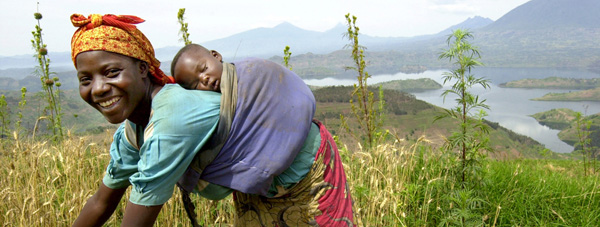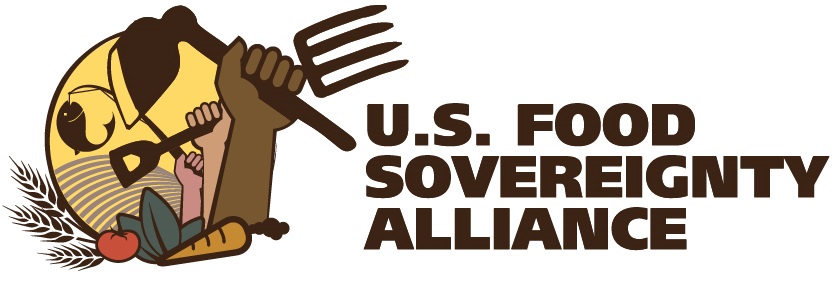
Food Week of Action – Sunday Oct. 11 through Sunday Oct. 18 – includes World Food Day (October 16) as well as the International Day for Rural Women (October 15) and the International Day for the Eradication of Poverty (October 17).
Let the US Food Sovereignty Alliance and people near and far know what you have planned for October, the Food Week or World Food Day! Fill out the easy form below to get on the map.
People in the U.S. and worldwide are taking back their food systems – fighting for their land and waterways, reclaiming vacant lots, teaching others how to grow food, and developing local distribution systems – while simultaneously creating jobs, providing fresh food, preserving the environment, building rural-urban connections, advocating for just policies, and revitalizing their communities. Local control of seeds—by farmers, gardeners and seed keeping groups—is crucial for food security and food sovereignty.
2015 Priority Actions
1) With Farmworkers! Begin by Boycotting Sakuma Berries! Support Familias Unidas por la Justicia in their struggle for a union contract. boycottsakumaberries.com.
2) With Family Farmers! The Trans-Pacific Partnership will likely hurt small-scale family farmers, the environment and democracy. Learn more and stay tuned for actions.
3) With Food Workers! Watch for workers organizing in your area and support them. UCC has a great list of groups and ways to ‘Stand with Workers’.
4) 2015’s Climate Negotiations are critical to the health of the planet and the livelihoods of tens of millions of people. Learn about climate & food/farm connections and join with communities united for a just transition. Learn here 1 2 3 4 and take action here.
Other Actions and Activity Ideas
- Celebrate the Winners of the Food Sovereignty Prize. Learn about the 2015 winners at foodsovereigntyprize.org and register to attend the ceremony (gratis) in Des Moines, Iowa on October 14. Like www.facebook.com/FoodSovereigntyPrize for updates.
- Join the Zero Hunger Challenge
Individuals and groups can join ZHC, an initiative of the United Nations to raise awareness and build a movement around eliminating hunger. - Share your food story with a captioned photo, video or written social media post (e.g. YouTube, Twitter, Instagram and Facebook), using the hashtag #myfoodstory via @e_alliance and @presbyhunger.
- Get your hands in the dirt: Plan a trip to your nearest farm to meet (and help!) the farmer and learn more about the challenges and joys of food production. Consider joining or starting a community garden. How-to and other ideas here: bit.ly/phpfoodfaith
- Celebrate local foods and knowledge: Organize a community fair that showcases local food producers and shares the stories of farmers and people involved in food justice.
To extend the Food Week of Action, join with others focusing on U.S. food issues on October 24.
Educational Materials
Agroecology: Putting Food Sovereignty Into Action
WhyHunger is proud to release its first agroecology publication, Agroecology: Putting Food Sovereignty into Action. Y en español, Ponerla Soberanía Alimentaria en Práctica
Ecumenical Advocacy Alliance – Nourishing the World Sustainably: Scaling Up Agro-ecology
This draft discussion document presents the Ecumenical Advocacy Alliance’s views and recommendations for Rio +20 on the need for further recognition of the full range of benefits of agro-ecological methods of food production and the support that is needed to use them on a wider scale.
Food Chain Avengers: A Food Justice & Worker Justice Comic Book
20 million people work in the food system in the U.S., joining millions around the world who labor on farms and in meat, poultry and food processing facilities, warehouses, grocery stores and restaurants. The food system is the largest employer in the U.S. and the majority of frontline food workers earn poverty wages. In the U.S., a third of food workers suffer from food insecurity and hunger.
Climate and Food Center Spread from the PHP Post (Presbyterian Hunger Program Justice Journal) -Infographic on how climate change impacts hunger and poverty.
International Assessment of Agricultural Knowledge, Science, and Technology for Development (IAASTD) Fact Sheet
The IAASTD, a major international scientific report, concludes that in order to feed 9 billion people in 2050, we urgently need to adopt the most effective and sustainable farming systems, and recommends a shift towards agro-ecology as a means of sustainably boosting food production and improving the situation of the poorest people and communities.
Join the event on Facebook with daily action suggestions and to get updates!




5 thoughts on “World Food Day & Food Week of Action”